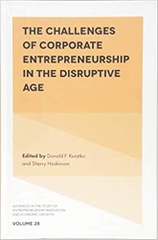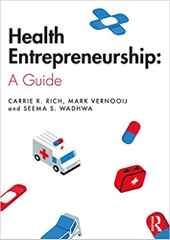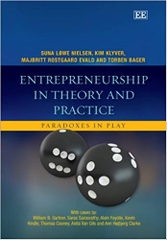-
-
-
Tổng tiền thanh toán:
-
-
Thông tin
-
Tìm sách theo yêu cầu
Everything you want out of life is in that bubbling vat of failure. The trick is to get the good stuff out.
No career guide can offer advice that works for everyone. As Adams explains, your best bet is to study the ways of others who made it big and try to glean some tricks and strategies that make sense for you. Adams pulls back the covers on his own unusual life and shares how he turned one failure after another into something good
Adams reveals that he’s failed at just about everything he’s tried, including his corporate career, his inventions, his investments, and his two restaurants. But there’s a lot to learn from his personal story, and a lot of humor along the way. Adams discovered some unlikely truths that helped to propel him forward. For instance:
• Goals are for losers. Systems are for winners.
Scott Adams has likely failed at more things than anyone you’ve ever met or anyone you’ve even heard of. So how did he go from hapless office worker and serial failure to the creator of Dilbert, one of the world’s most famous syndicated comic strips, in just a few years? In How to Fail at Almost Everything and Still Win Big, Adams shares the strategy he has used since he was a teen to invite failure in, embrace it, then pick its pocket.
No career guide can offer advice that works for everyone. As Adams explains, your best bet is to study the ways of others who made it big and try to glean some tricks and strategies that make sense for you. Adams pulls back the covers on his own unusual life and shares how he turned one failure after another into something good
and lasting.
Adams reveals that he’s failed at just about everything he’s tried, including his corporate career, his inventions, his investments, and his two restaurants. But there’s a lot to learn from his personal story, and a lot of humor along the way. Adams discovered some unlikely truths that helped to propel him forward. For instance:
• Goals are for losers. Systems are for winners.
• “Passion” is bull. What you need is personal energy.
• A combination of mediocre skills can make you surprisingly valuable.
• You can manage your odds in a way that makes you look lucky to others.
“This is a story of one person’s unlikely success within the context of scores of embarrassing failures. Was my eventual success primarily a result of talent, luck, hard work, or an accidental just-right balance of each? All I know for sure is that I pursued a conscious strategy of managing my opportunities in a way that would make it easier for luck to find me.”
Adams hopes you can laugh at his failures while discovering some unique and helpful ideas on your own path to personal victory. As he writes:
“This is a story of one person’s unlikely success within the context of scores of embarrassing failures. Was my eventual success primarily a result of talent, luck, hard work, or an accidental just-right balance of each? All I know for sure is that I pursued a conscious strategy of managing my opportunities in a way that would make it easier for luck to find me.”
Product Details
- Hardcover: 256 pages
- Publisher: Portfolio Hardcover (October 22, 2013)
- Language: English
- ISBN-10: 1591846919
- ISBN-13: 978-1591846918
- Product Dimensions: 9.3 x 6.3 x 1 inches
- Shipping Weight: 15.5 ounces (View shipping rates and policies)
- Average Customer Review: 4.6 out of 5 stars See all reviews (210 customer reviews)
- Amazon Best Sellers Rank: #13,042 in Books (See Top 100 in Books)
- #18 in Books > Arts & Photography > Drawing > Cartooning
- #36 in Books > Humor & Entertainment > Humor > Self-Help & Psychology
- #94 in Books > Business & Money > Job Hunting & Careers > Guides
Editorial Reviews
From Booklist
The creator of the Dilbert comic strip is also the author of several nonfiction books that apply Dilbert’s philosophy to the workplace. Here he takes an autobiographical approach, using his own life to illustrate his thesis that failure isn’t necessarily a bad thing. Adams’ own list of failures is—given his spectacular success as a cartoonist—surprisingly lengthy: a couple of unsuccessful restaurants as well as computer games, inventions, and online businesses that all tanked. Adams isn’t bummed by any of his flops because—and this is the key element of his philosophy—you learn by trying, not by succeeding. And every failure in life helps point us in the direction of ultimate success. (Adams says he would never have become a cartoonist if it weren’t for a combination of personal failures and the successes of some of his friends, who were willing to take personal risks.) Readers familiar with the author’s previous nonfiction will note the same easygoing, conversational style here, an approach that works perfectly for blending humor with serious advice. --David Pitt
About the Author
Scott Adams is the creator of Dilbert, one of the most popular and widely-distributed comic strips of the past quarter century. He has been a full-time cartoonist since 1995, after 16 years as a technology worker for companies like Crocker National Bank and Pacific Bell. His many bestsellers include The Dilbert Principle and Dogbert’s Top Secret Management Handbook. He lives outside of San Francisco.
- Link: http://www.amazon.com/How-Fail-Almost-Everything-Still/dp/1591846919
Most Helpful Customer Reviews
40 of 41 people found the following review helpfulBy Amazon Customer on October 26, 2013
Format: Kindle Edition Verified Purchase
1 Comment Was this review helpful to you? YesNoThe book was a joy to read
His key ideas are easy to follow because he keeps it simple and Scott Adams writes in a clear and witty manner
For example the chapter on applying a system vs setting goals and trying to follow them was worth the price of the book many times over for me (and this is reinforced through the book). In his own words goals are a reach-it-and-be-done situation (where you are often waiting to achieve it someday in the future) whereas a system is something you do on a regular or daily basis with a reasonable expectation that doing so will get you to a better place in life. Wanting better health or wanting to lose 10 kg are goals. Being active everyday is a system. One is tied to another - but goals people are fighting the feeling of discouragement at each turn and the systems people are feeling good every-time they apply their system.
I wholeheartedly recommend this book to anyone smart and weary of reading tired cliches in the self-help genre. The book is a breath of fresh air!
His key ideas are easy to follow because he keeps it simple and Scott Adams writes in a clear and witty manner
For example the chapter on applying a system vs setting goals and trying to follow them was worth the price of the book many times over for me (and this is reinforced through the book). In his own words goals are a reach-it-and-be-done situation (where you are often waiting to achieve it someday in the future) whereas a system is something you do on a regular or daily basis with a reasonable expectation that doing so will get you to a better place in life. Wanting better health or wanting to lose 10 kg are goals. Being active everyday is a system. One is tied to another - but goals people are fighting the feeling of discouragement at each turn and the systems people are feeling good every-time they apply their system.
I wholeheartedly recommend this book to anyone smart and weary of reading tired cliches in the self-help genre. The book is a breath of fresh air!
71 of 77 people found the following review helpfulBy Chad M. Sorenson on October 23, 2013
Format: Hardcover Verified Purchase
I had this pre-ordered after reading the WSJ article. It came yesterday around noon and I finished it at 4:00 AM this morning, with few breaks within that time frame. It wasn't the plan for my day, but I don't regret changing my day around to read this book.
I would say any book that holds my interest like that deserves a 5-start rating, though there are a few things that I'd tweak to get it closer to perfection. My official score, being a tough grader, is a 4.6/5.0 and I wouldn't resell it for twice what I paid ... especially now that it's fully highlighted and sticky-noted throughout (which makes the book more valuable to me now because I've identified the portions that spoke directly to me and my own experiences).
I really enjoyed Scott's independent thinking and challenges of conventional wisdom throughout this book, especially as it contrasts with other self-help, goal-setting or business advice books. For instance, choosing an opportunity for which one has some sort of inherent advantage rather than blindly prescribing "you can do whatever you want" appeals to my pragmatic mind. I have wrestled with this exact conclusion within the past year as I work through my own list of new ideas and opportunities, so I enjoyed that perspective as it resonates with my own thinking.
I really enjoyed the thinking on pg. 40, which is fully highlighted, less perhaps a couple sentences. This is where Scott talks about his mental model of not wanting to sell his time due to limited upside and finding a product that is infinitely scalable. I appreciated this candidness, which allows the reader to better understand the later "luck" and apparent rapid success of Dilbert. It's clear to me, Scott's success was a lifetime in the making, the product of continued experimentation and the tenacity to stay at it. This whole book was helpful to me, as my model is exactly the same and the road to success is anything but certain when you're placing bets on what the public wants. Having a system that embraces and anticipates failure, in particular, is an essential tool to avoid letting temporary results bleed over into derailing what could be a highly successful longer-term career choice.
Pg. 88, talking about when to quit and how successful ventures often have SOME element of success early-on also resonated with me, and is another page that is more yellow than white after reading this book. These comments also directly resonated with some false-starts I've had, where I correctly pulled the plug after minimal investment of time because things just did not feel right almost from the get-go. I felt poorly about pulling the red handle so early while I was ejecting, but now looking back I know I was practicing the exact type of discipline one needs to practice when trying totally new things. Plan on a good chunk of your initial tests, ideas and hypotheses being off the mark and blindly plowing time and effort at soft-starts is a recipe for disaster. One of my favorite quotes in the book is "Persistence is useful, but there's no point in being an idiot about it." That got a "lol!"
I also appreciated Scott's thoughts on useful core skills, especially psychology. This topic has become more and more interesting to me after sluffing through Pscych 202 in college, when it seems like a diversion from more useful topics. I now see how important that is, and also how little I know in this universe of knowledge. The terms page of psychological topics is a lifetime of potential study in itself, so the book leads you to new domains of study if you so choose.
Scott urges the reader to not accept anything at face value, and my personal model embraces a good chunk of this body of wisdom with a few of my own twists. Any book that holds your interest and gives you new things to think about is worth owning and reading, in my opinion. This book satisfies that criteria with ease. Thank you for writing it and good luck with the book.
I would say any book that holds my interest like that deserves a 5-start rating, though there are a few things that I'd tweak to get it closer to perfection. My official score, being a tough grader, is a 4.6/5.0 and I wouldn't resell it for twice what I paid ... especially now that it's fully highlighted and sticky-noted throughout (which makes the book more valuable to me now because I've identified the portions that spoke directly to me and my own experiences).
I really enjoyed Scott's independent thinking and challenges of conventional wisdom throughout this book, especially as it contrasts with other self-help, goal-setting or business advice books. For instance, choosing an opportunity for which one has some sort of inherent advantage rather than blindly prescribing "you can do whatever you want" appeals to my pragmatic mind. I have wrestled with this exact conclusion within the past year as I work through my own list of new ideas and opportunities, so I enjoyed that perspective as it resonates with my own thinking.
I really enjoyed the thinking on pg. 40, which is fully highlighted, less perhaps a couple sentences. This is where Scott talks about his mental model of not wanting to sell his time due to limited upside and finding a product that is infinitely scalable. I appreciated this candidness, which allows the reader to better understand the later "luck" and apparent rapid success of Dilbert. It's clear to me, Scott's success was a lifetime in the making, the product of continued experimentation and the tenacity to stay at it. This whole book was helpful to me, as my model is exactly the same and the road to success is anything but certain when you're placing bets on what the public wants. Having a system that embraces and anticipates failure, in particular, is an essential tool to avoid letting temporary results bleed over into derailing what could be a highly successful longer-term career choice.
Pg. 88, talking about when to quit and how successful ventures often have SOME element of success early-on also resonated with me, and is another page that is more yellow than white after reading this book. These comments also directly resonated with some false-starts I've had, where I correctly pulled the plug after minimal investment of time because things just did not feel right almost from the get-go. I felt poorly about pulling the red handle so early while I was ejecting, but now looking back I know I was practicing the exact type of discipline one needs to practice when trying totally new things. Plan on a good chunk of your initial tests, ideas and hypotheses being off the mark and blindly plowing time and effort at soft-starts is a recipe for disaster. One of my favorite quotes in the book is "Persistence is useful, but there's no point in being an idiot about it." That got a "lol!"
I also appreciated Scott's thoughts on useful core skills, especially psychology. This topic has become more and more interesting to me after sluffing through Pscych 202 in college, when it seems like a diversion from more useful topics. I now see how important that is, and also how little I know in this universe of knowledge. The terms page of psychological topics is a lifetime of potential study in itself, so the book leads you to new domains of study if you so choose.
Scott urges the reader to not accept anything at face value, and my personal model embraces a good chunk of this body of wisdom with a few of my own twists. Any book that holds your interest and gives you new things to think about is worth owning and reading, in my opinion. This book satisfies that criteria with ease. Thank you for writing it and good luck with the book.
XEM THÊM TẠI AMAZON.COM
- Thông tin chi tiết
- Mục lục
- Đọc thử
- Đọc thử
- Đánh giá & bình luận của người mua
- Những cuốn sách cùng chủ đề hoặc có liên quan
Tại web chỉ có một phần nhỏ các đầu sách đang có nên nếu cần tìm sách gì các bạn có thể liên hệ trực tiếp với Thư viện qua Mail, Zalo, Fanpage nhé
Đăng ký nhận tin qua email
Hãy đăng ký ngay hôm nay để nhận được những tin tức cập nhật mới nhất về sản phẩm và các chương trình giảm giá, khuyến mại của chúng tôi.












